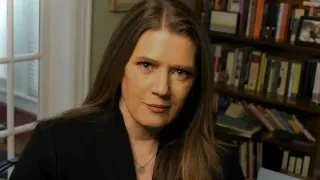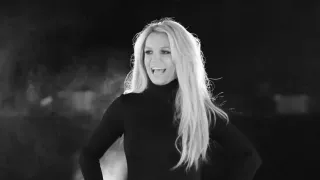September 13, 2022
Review: 'Albatross' is a Haunting Debut Feature
David-Elijah Nahmod READ TIME: 4 MIN.
Writer/director Myles Yaksich offers up "Albatross," an impressive debut feature, a tale of secrets and repression set in the 1950s. The film's opening scene suggests that it's going to be a romantic gay love story. Two beautiful young men sit on a foggy beach and speak softly to each other. One reads poetry aloud while the other plays an opera on a radio. They kiss each other. But their story, it turns out, is not the focal point of the story.
The opening scene is actually a flashback in the life of Dr. Lloyd Burke (David Keeley) a middle-aged psychiatrist who's having sex with his young patient. This highly unethical doctor and his wife Carol (Sarah Orenstein) await the arrival of their dinner guests, a biracial couple named Elizabeth and Thomas Miller (Katherine Gautier, Romaine Waite). Dinner is a somewhat uncomfortable affair, as the Burkes had no idea that Thomas is Black. When the Millers arrive, Carol is taken aback, though she quickly regains her composure.
Part of the film deals with the difficulties the Millers face as a biracial couple in a small town a little over sixty years ago. Thomas is a fledgling novelist who wants to write about the Black experience. His publisher has other ideas and wants Thomas to write a more commercial romance novel. Elizabeth recognizes his talent and is his financial support, though she seems to yearn to have children. They're at the Burkes' to try and make more friends in a town that may not be accepting of them. The Burkes are a respected couple in the town because of the doctor's psychiatry practice and Carol's membership in the local country club.
The Burkes' marriage appears to be somewhat troubled. While standing outside the door of the room where her husband conducts his sessions, Carol hears the heavy breathing of Lloyd's patient. When the patient leaves Lloyd seems nervous. Both couples, it turns out, harbor secrets.
The film is beautifully shot. The beach prologue has an almost ghostly feel to it, made all the more haunting by the sound of the waves, the slightly overcast sky, and the operatic sounds emitting from the radio. The Burke's home is a dark, elegantly appointed manor, the perfect setting for drama to unfold and secrets to be revealed.
The acting is superb. Keeley is particularly good as the doctor who lives in fear that his secret will come out. His fear is never stated, it's illustrated through body language and facial expressions. As Lloyd stands in his front door saying goodbye to his patient, the young man leans towards him as though he were going to give him a kiss. Lloyd pushes him away, then looks around nervously, afraid that somewhat might have seen them and guessed the unethical nature of his relationship with his patient.
Gautier and Waite are wonderful as the young couple who love each other dearly, but who have many hurdles to overcome, most notably facing the reality of how people will perceive them. There are other types of tension between them. Elizabeth is also getting weary of not having children and of Thomas' writing career going nowhere. Is she resentful of being his financial support? How much she supports him is illustrated early on in the film when their car breaks down on the way to the Burkes'. Thomas doesn't have a clue what to do. It's Elizabeth who fixes the car.
Yaksich's direction is tight and precise. The film, set almost exclusively in the Burke home, never feels stagy. The fascinating characters make the 100-minute film feel as though its running time were shorter.
"Albatross" ultimately stands as a fine drama about the class struggle in society. It is very much worth seeing. The film is currently streaming on various Video-on-Demand platforms.
Help keep the Bay Area Reporter going in these tough times. To support local, independent, LGBTQ journalism, consider becoming a BAR member.






